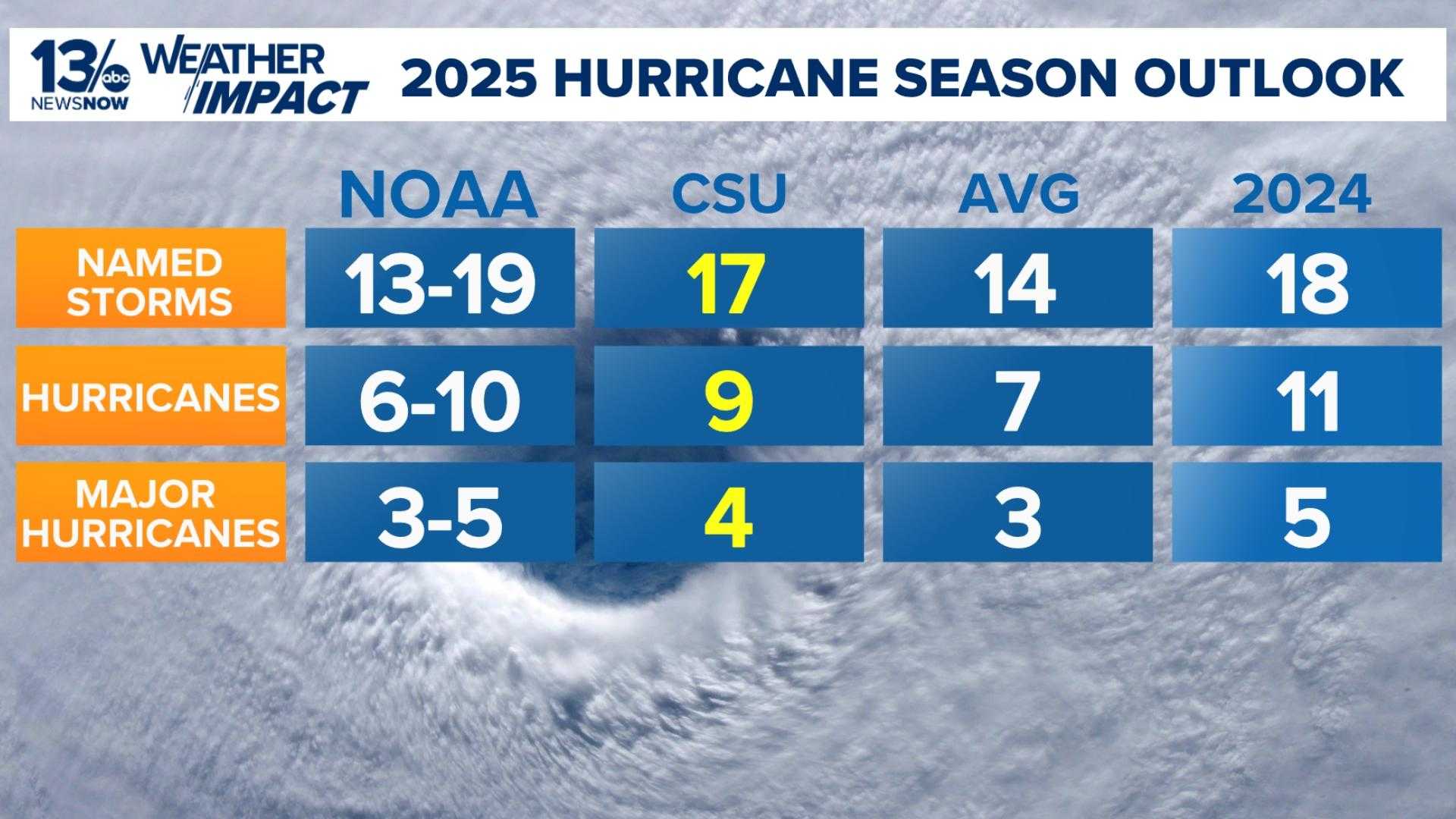News
NOAA Predicts Above-Normal Hurricane Season Amid Climate Factors

JACKSONVILLE, Fla. – On August 7, 2025, the National Oceanic and Atmospheric Administration (NOAA) reported that current atmospheric and oceanic conditions favor an above-normal Atlantic hurricane season this year. This conclusion aligns with earlier predictions made by NOAA in May.
Forecasters have updated their expectations for the number of named storms to between 13 and 18, indicating that five to nine of these storms may develop into hurricanes, with two to five potentially classified as major hurricanes. This outlook covers the entire hurricane season, which runs from June 1 to November 30, and includes the four named tropical storms that have already occurred.
“NOAA stands ready to provide the forecasts and warnings that are vital for safeguarding lives, property, and communities,” said Acting NOAA Administrator Laura Grimm. She emphasized the importance of proactive preparation as the season progresses.
The favorable conditions for an active hurricane season include warmer-than-average sea surface temperatures in the Atlantic Ocean and Caribbean Sea, along with an active West African Monsoon. Additionally, the chances of above-normal storm activity are currently estimated at 50%, with a 35% likelihood of a near-normal season and a 15% chance of below-normal activity.
So far, the hurricane season has seen its first U.S. landfall with Tropical Storm Chantal, which brought high winds and significant flooding to the Carolinas during the Independence Day weekend. NOAA’s National Weather Service Director Ken Graham urged people to prepare for varied hazards associated with storms. “No two storms are alike,” he said. “Have a plan in place and understand what actions to take before, during, and after a storm.”
Looking forward, NOAA emphasizes that while predictions point to an active season, actual landfalls depend on short-term weather patterns that are primarily predictable only a week in advance. The agency continues to monitor conditions and provide real-time updates through its National Hurricane Center.












